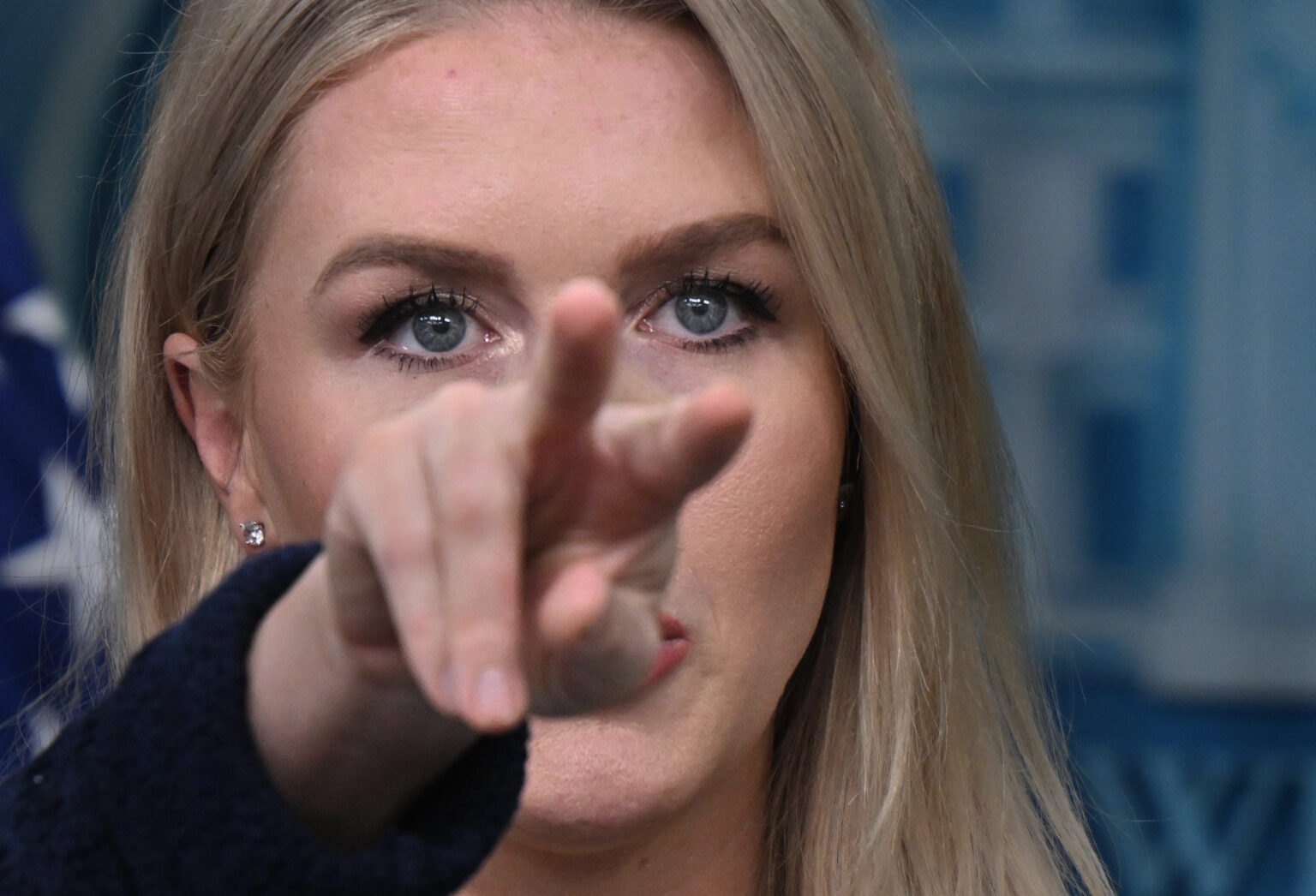White House Claims on Congressional Budget Office Partisanship: A Closer Look
Recently, White House spokesperson Karoline Leavitt made a striking assertion during a press briefing, stating, “Few realize that since 2000, not a single staff member at the Congressional Budget Office (CBO) has contributed to a Republican candidate. Conversely, numerous staffers have consistently supported Democratic politicians and causes in every election cycle. This indicates that the CBO has become a partisan and political institution.”
Fact-checking statements from White House officials is a challenging task, as their role often involves spinning narratives rather than presenting straightforward facts. Our focus remains on evaluating the substance of policy issues rather than the spin. However, the White House’s recent attack on the CBO, a respected nonpartisan agency responsible for analyzing the fiscal impact of legislation, appears to be based on a misrepresentation of facts.
The White House’s Narrative Versus Reality
The White House’s criticism centers on a CBO report estimating that the proposed comprehensive tax and spending reform bill would increase the national debt by trillions over a decade. While the bill narrowly passed the House and faces opposition from some Senate Republicans and influential figures like Elon Musk, the White House claims this demonstrates bias within the CBO. They argue that the agency’s findings are politically motivated, despite similar analyses from independent organizations such as the Tax Foundation, Penn-Wharton Budget Model, Manhattan Institute, and Center for American Progress arriving at comparable conclusions.
The CBO’s role as the official scorekeeper for Congress grants it significant influence, which the White House seems to find inconvenient. Instead of engaging with the substance of the analysis, the White House has chosen to attack the messenger, alleging partisanship based on a limited set of data.
Dissecting the Evidence
When questioned about the claim, a White House official cited Federal Election Commission (FEC) records, highlighting 250 contributions since 2000 from individuals who listed the CBO as their employer. The implication was that these donations indicated widespread political bias within the agency.
However, a deeper examination reveals that this claim is misleading. The FEC data shows that all contributions were directed toward Democratic candidates or causes, such as LGBTQ+ rights initiatives. Yet, many of these donations originated from the same small group of individuals. Since 2015, just 16 people accounted for approximately 210 donations-mostly small amounts of $10 or $20-spanning from 2015 to the present. Extending back to 2000, only eight additional individuals contributed.
Given that the CBO employs roughly 275 staff members, with high turnover and many employees serving in low-profile roles, these figures represent a tiny fraction of the total workforce. Most staff members likely maintain neutrality, choosing not to engage in political donations to preserve their impartiality.
Backgrounds of the Donors and Agency Staffing
Further investigation into the small group of donors reveals that many have since left the agency, retired, or passed away. The majority held positions unlikely to influence major budget analyses, such as administrative or support roles. Only three individuals-two editors and an agricultural analyst-made donations in the 2024 election cycle. The largest contribution was a modest $100 to Vice President Kamala Harris, with other donations under $30 to congressional candidates or Harris herself.
Additionally, the CBO director, Phillip Swagel, has a history of Republican affiliation. He served in the George W. Bush administration and contributed $1,000 to a Republican gubernatorial candidate in 2014. The appointment process for the CBO director involves bipartisan selection by the House and Senate Budget Committees, with terms typically lasting four years. Swagel was appointed in 2019 by a Republican senator and reappointed in 2023 upon recommendation from a Republican representative.
The White House has not addressed questions regarding Swagel’s political background, but the agency’s hiring policies emphasize neutrality. CBO states it seeks to hire the most qualified candidates based solely on their ability to perform the job, considering political associations only insofar as they are publicly disclosed. The agency also enforces restrictions on political activities among its employees.
Evaluating the White House’s Claims: The Pinocchio Test
Labeling the White House’s assertion as a “verifiable fact” is, in reality, a mischaracterization. The FEC contribution records do not substantiate claims that the CBO has become a partisan entity favoring Democrats. Instead, they merely show a handful of low-level employees making small donations to Democratic causes over a span of years. This small sample does not reflect the agency’s overall neutrality or its professional integrity.
It’s worth noting that political donations by prominent figures can be misleading. For example, before 2011, Donald Trump donated more to Democratic candidates than Republicans-a fact that, while verifiable, does not imply ongoing partisan bias today.
Based on this analysis, Karoline Leavitt’s statement earns a rating of Four Pinocchios, indicating a significant departure from factual accuracy.
Conclusion: The Importance of Context in Political Claims
In political discourse, it’s crucial to scrutinize claims carefully and consider the broader context. The White House’s attempt to portray the CBO as a partisan institution based on minimal and outdated data does not withstand close examination. The agency’s staffing policies, historical background, and the small scale of donations from current employees all point toward a nonpartisan, professional organization committed to objective analysis.
As we evaluate such claims, remember that political narratives often rely on selective facts or misrepresentations. Critical analysis helps ensure that public understanding remains rooted in reality rather than political spin.

